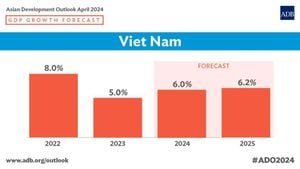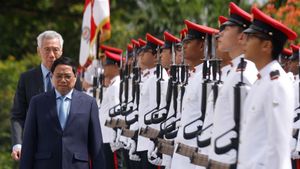The allegations surrounding Yang Tengbo, a businessman previously connected to Prince Andrew, have taken center stage following the lifting of anonymity restrictions by the High Court. Yang, who was known only as 'H6' until recently, publicly declared his innocence, firmly stating, "I have done nothing wrong or unlawful and the concerns raised by the Home Office against me are ill-founded. The widespread description of me as a 'spy' is entirely untrue." These words came as he became the focus of intense scrutiny amid fears of espionage linked to China.
Yang's remarks highlight the growing tensions between the UK and China, especially as he commented on the political climate, claiming, "When relations are good, and Chinese investment is sought, I am welcome in the UK. When relations sour, an anti-China stance is taken, and I am excluded." His connection to Prince Andrew was revealed as significant, particularly due to his role as the founder-partner of Pitch@Palace China, the duke's initiative aimed at supporting entrepreneurs.
The controversy gained momentum last week when Yang lost a legal bid to overturn his ban from entering the UK, based on national security grounds. Amid growing public pressure to reveal his identity, Richard Tice, deputy leader of Reform UK, threatened to disclose Yang's name within the halls of Parliament using parliamentary privilege, which allows MPs to speak freely without fear of legal repercussions.
Following the lifting of the anonymity order, Prince Andrew asserted he had ended all communication with Yang, clarifying through his office, "I ceased all contact...but insisted the pair had never discussed anything of a 'sensitive nature'.” This distance appears to be influenced by the negative publicity surrounding the allegations against Yang. Previously, Andrew had been seen with Yang at various events, including the prince's birthday party in 2020.
The public disclosure of Yang's identity led to appeals from political figures like Sir Iain Duncan Smith, who raised concerns about the United Front Work Department (UFWD), which Yang is tied to. Smith emphasized the need to classify China as the UK's most significant security threat, elaborately underpinning the sentiment of increasing caution and regulatory measures necessary to shield national interests.
Home Office minister Dan Jarvis mentioned the prospects of placing China on the enhanced tier of the foreign influence registration scheme (FIRS), aimed at requiring individuals representing foreign interests to disclose their affiliations. This might serve as proactive mitigation against the alleged permeation of foreign influence within UK politics.
National security experts have echoed similar sentiments, with Professor Anthony Glees from the University of Buckingham stating, "Mr Yang's statement is not worth the paper it was written on." His assessment points to historical patterns wherein long-term infiltration strategies from foreign nations frequently place individuals associated with them at significant positions of influence. Glees elaborated, describing the challenges faced when addressing such complex issues with hostile states.
The comments reflect growing dissatisfaction among officials about the current approach to China. Lord Patten, the former governor of Hong Kong, noted the existing cooperation with China and questioned its utility against the backdrop of Yang’s allegations. He remarked on the potential risks posed by individuals associated with the UFWD infiltrated within UK power structures, fostering discussions about the measures required to protect sensitive angles of national governance.
While Prince Andrew continues to navigate the fallout from previous scandals, including his ties to the late disgraced financier Jeffrey Epstein, his absence from the royal family's Christmas gathering at Sandringham also emphasizes the challenges he faces amid changing public sentiment and constant media scrutiny. Andrew has been part of Christmas celebrations over the last few years, making his withdrawal particularly notable this year.
The lifting of restrictions related to Yang is not merely procedural but speaks volumes about the intersection of international relations and internal safety measures. The tension encapsulates broader fears about external influence infiltrated within the fabric of government, spurred by rapid geopolitical changes globally.
Wrapping up the events surrounding Yang and Andrew, the spokesperson for China claimed, "China has always acted in an upright and honest manner and has never engaged in any deception or interference..." addressing the accusations levied against Yang. This broad perspective highlights the continual friction inherent to the UK's pursuit of clearer strategies amid national security threats. Given the prevailing circumstances, decision-makers face complex pathways to safeguard the nation without stifling beneficial international relationships.



